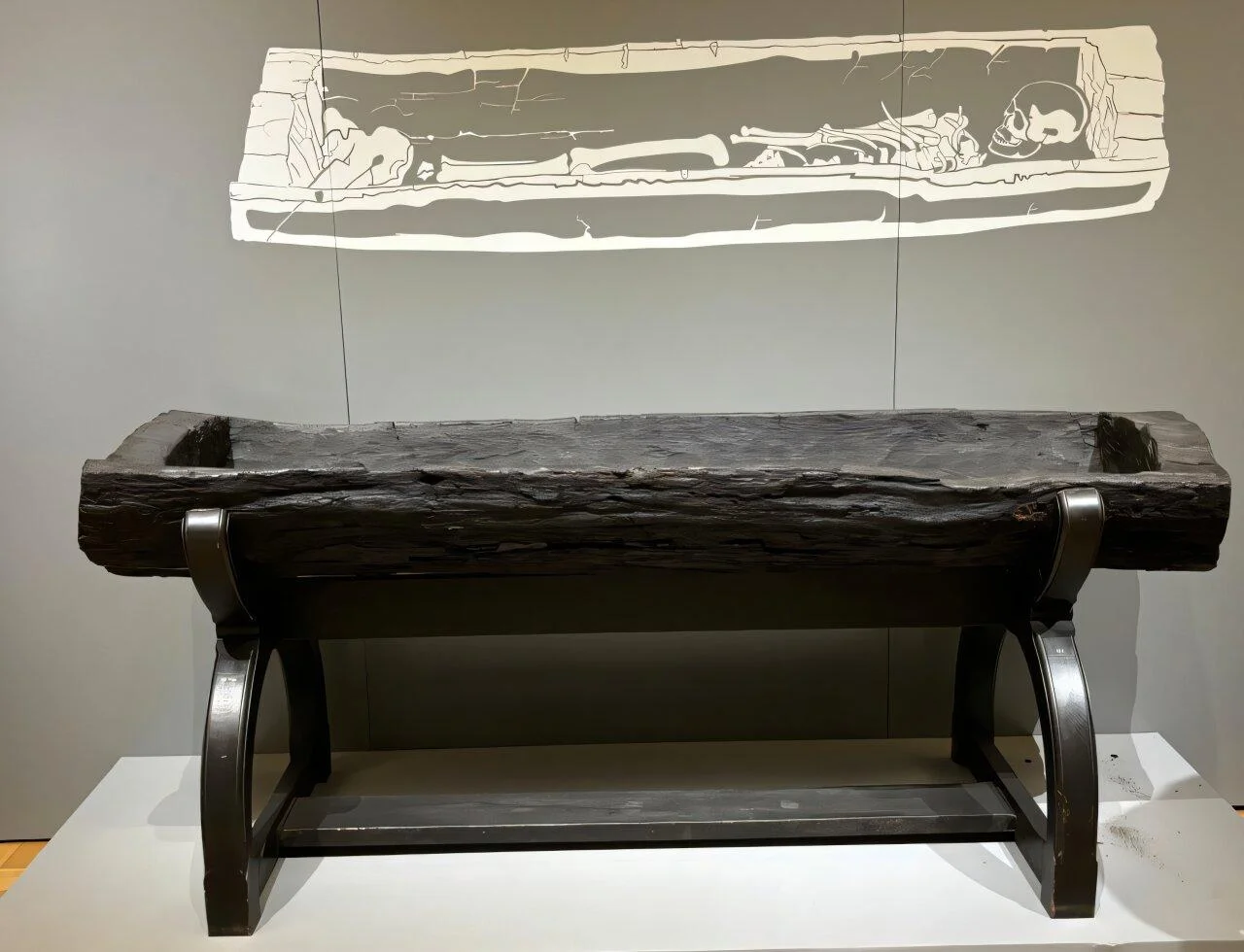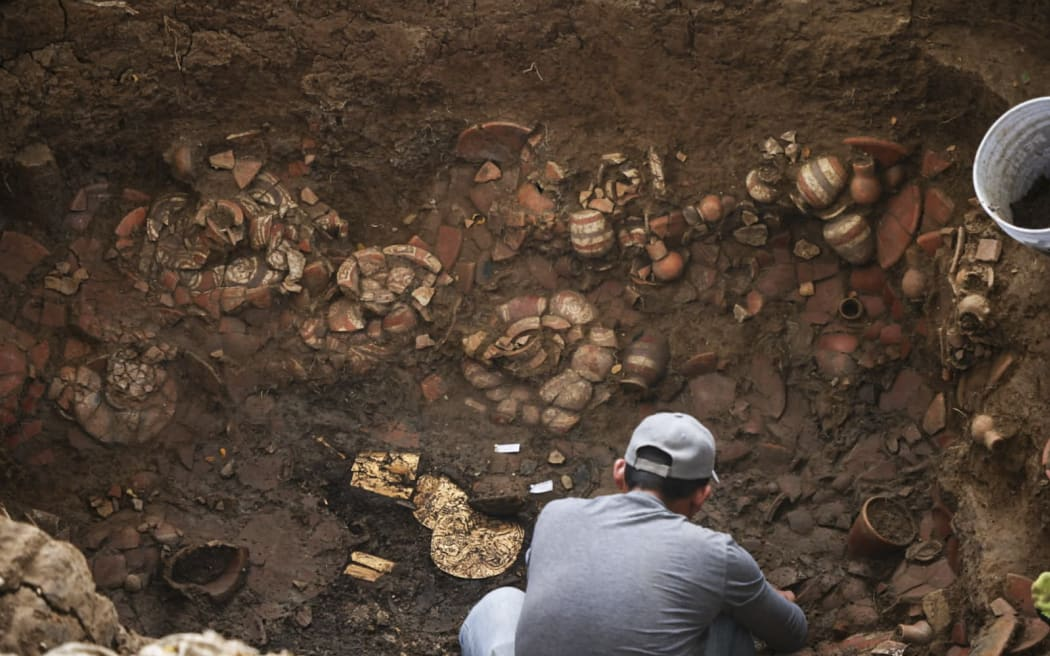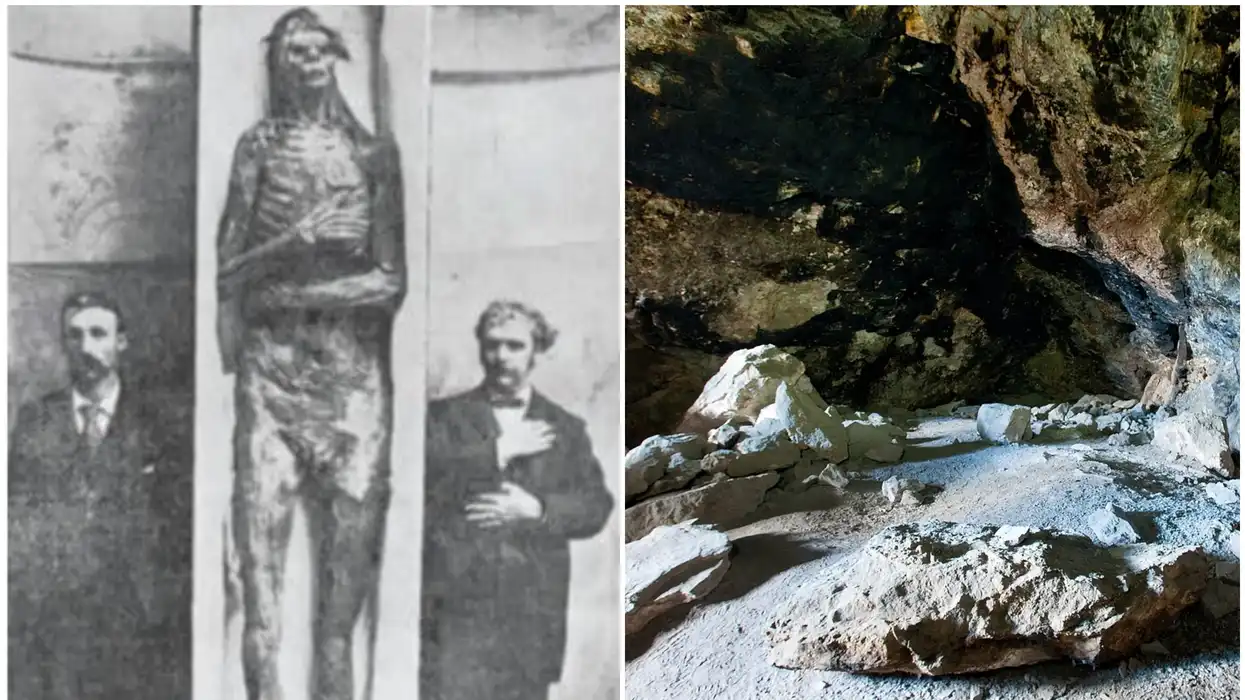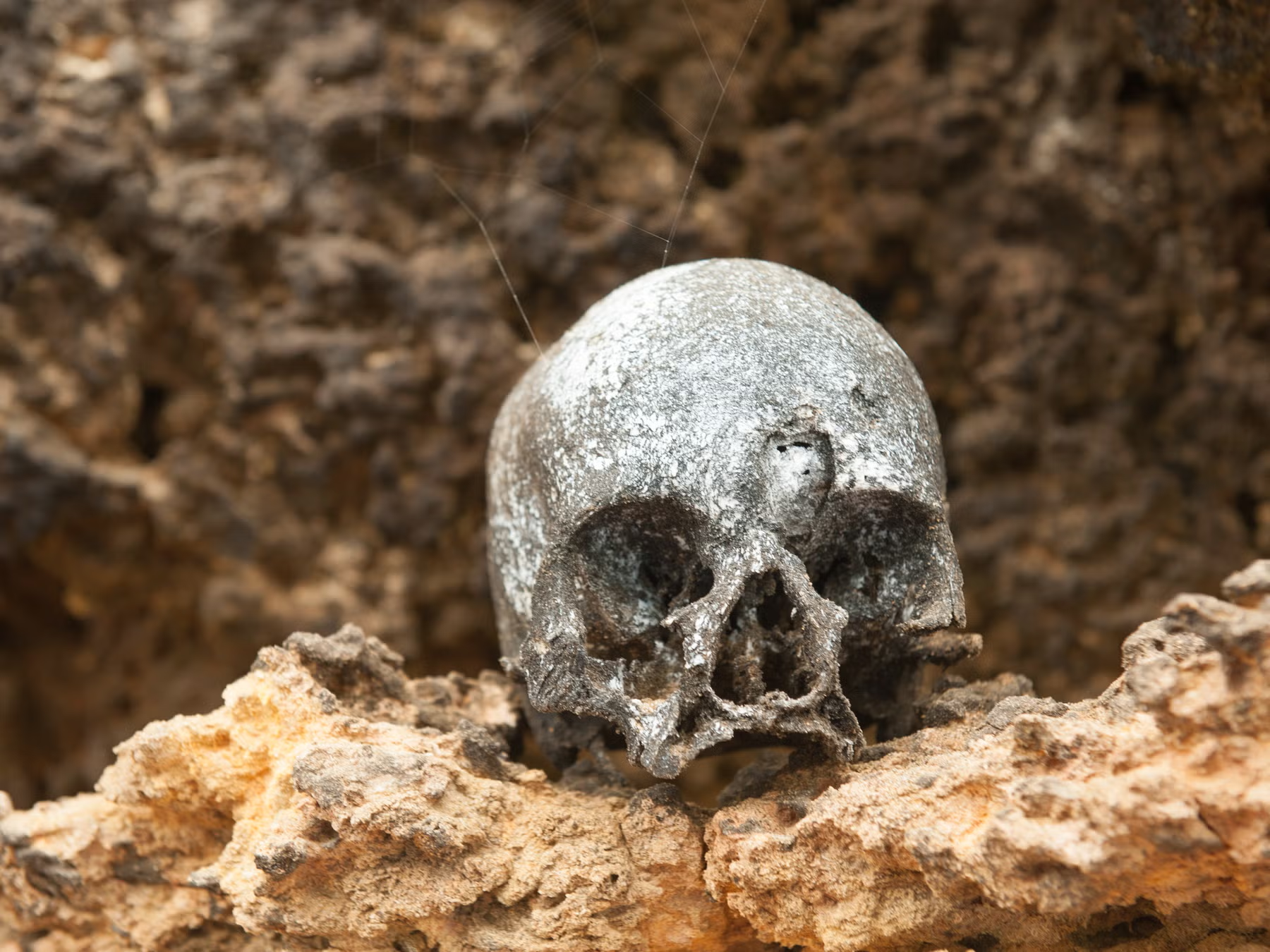Wooden posts uncovered in Lake Ohrid in Albania have been identified as the submerged remains of a prehistoric settlement dating back 6,000 to 8,000 years, making it the oldest known lakeside village in Europe.
Swiss and Albanian archaeologists spend hours each day working at a depth of three meters, where they carefully recover the posts that once supported the settlement’s dwellings.
They are also collecting bones from domestic and wild animals, copper objects, and clay vessels decorated with engraved patterns—evidence of a community of dozens or even hundreds of people who hunted and fished but relied primarily on farming.
A drone image shows the underwater excavation site (Reuters)
“Because the site is underwater, the organic material is very well preserved, which allows us to study what these people ate and what they cultivated,” Albert Hafner of the University of Bern, a member of the research team, told Reuters.
Previous studies have already shown that Lake Ohrid—shared by Albania and North Macedonia—is by far the oldest lake in Europe, with a history spanning more than one million years.
According to the archaeologists, the newly discovered remains are at least half a millennium older than other prehistoric lakeside settlements in the Alps and the Mediterranean.
A section of a wooden post retrieved from the lakebed (Reuters)
The wooden materials were dated using carbon-14 analysis and dendrochronology, a method based on measuring tree growth rings.
The settlement is estimated to have covered an area of about 60 acres, but so far only 1% has been explored. Researchers believe that a complete investigation could take decades.









